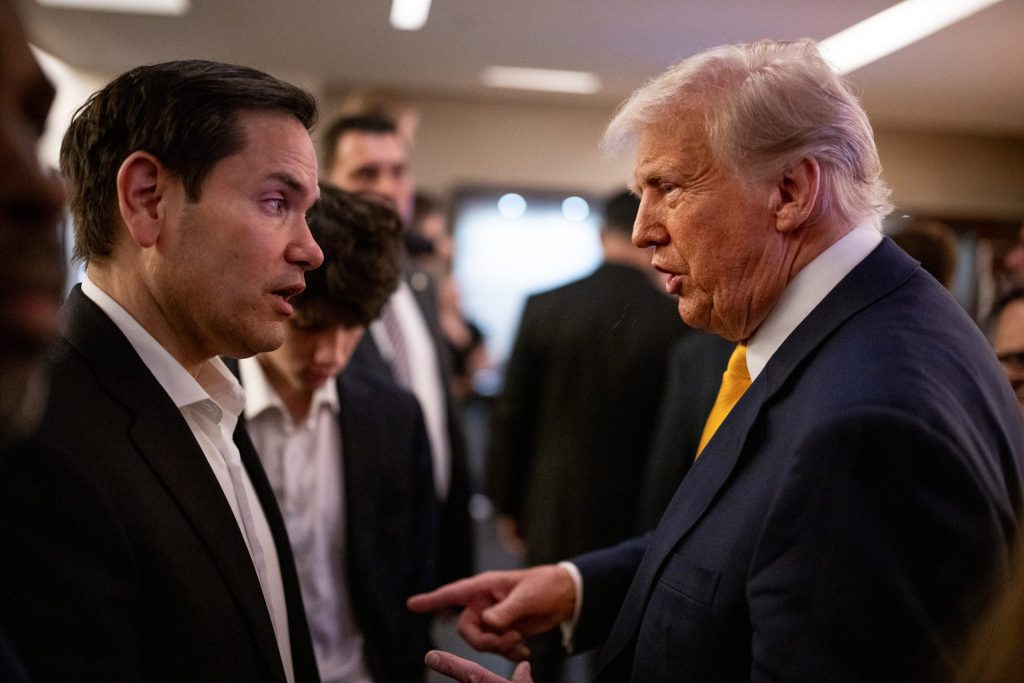Federal government officials have confirmed for the first time that Columbia University junior Yunseo Chung is one of two legal permanent residents Sec. of State Marco Rubio personally identified for deportation amid a widespread crackdown on noncitizen college students for their participation in allegedly antisemitic activities.
Chung, a 21-year-old born in South Korea who has lived in the U.S. since age seven, was named in an undated memo written by Rubio that claims her continued presence in the country “would have potentially serious adverse foreign policy consequences for the United States.”
The memo was filed by government attorneys on Friday in a federal lawsuit brought by Chung that challenges the Department of Homeland Security’s bid to detain and deport her. Chung’s name had been redacted from a version of the letter that was published by the Associated Press last week, which also names Columbia graduate and green card-holder Mahmoud Khalil.
Chung was arrested by NYPD officers on March 5 at a pro-Palestinian protest at Barnard College, the women’s affiliate of Columbia University, and charged with obstructing governmental administration and disorderly conduct. She was released with a ticket ordering her to appear in court.
Two days later, DHS provided Chung and Khalil’s names and information to the U.S. Department of State, with Rubio deciding that same day, under a rarely invoked clause of the Immigration and Nationality Act, that they were harming U.S. foreign policy interests.
His memo says their participation in “antisemitic protests and disruptive activities” served to “undermine U.S. policy to combat anti-Semitism around the world and in the United States,” and that his determination was based in part on Chung’s “citations for unlawful activity” at the protests.
The State Department’s push to deport Khalil, who served as a mediator and spokesperson for pro-Palestinian groups that held demonstrations and actions on Columbia’s campus last year, was approved by a Louisiana immigration judge on Friday.
Immigration judges are part of the executive branch, appointed by the attorney general. Khalil’s attorneys are separately challenging the government’s bid to remove him in federal court in New Jersey.
Chung’s attorneys sued the Trump administration on March 24 — while she was in hiding from attempts by ICE agents to detain her — arguing that she was being persecuted for speech and activities that are protected by the First Amendment.
The judge approved a temporary restraining order the next day that blocks the government from detaining her or transferring her out of New York while the case proceeds.
‘An Impermissible Challenge’
In the government’s first response since the restraining order was issued, attorneys for the Manhattan U.S. Attorney’s office argued Friday that the case should be dismissed because federal district courts don’t have jurisdiction over immigration matters.
They argued that only after Chung had exhausted her administrative options, by going through a removal proceeding in immigration court, could she challenge the government’s actions — and then only through a federal appeals court, rather than a district judge.
“The Court should dismiss this action for lack of subject-matter jurisdiction, as it presents an impermissible challenge to removal proceedings,” wrote assistant United States attorneys Brandon Waterman and Jeffrey Oestericher.
The filing also newly details the lengths to which ICE agents went to locate Chung between the time that the Department of Homeland Security approved an administrative warrant for her arrest on March 8 and the day that federal agents executed a search warrant of her Columbia dorm room on March 13.
It says that on March 12, ICE issued an administrative subpoena to Columbia seeking all video footage at Chung’s dorm building covering the prior three and a half days. On March 13, ICE issued another administrative subpoena to the university seeking all of Chung’s “Student Identification Swipe Card Access Data” since her arrest more than a week prior.
The filing doesn’t say whether Columbia complied with the administrative subpoenas, which immigration groups say don’t require the same level of compliance as judicial subpoenas. But it notes that the university refused to allow ICE agents access to the campus on March 8 because the administrative warrant for Chung’s arrest wasn’t accompanied by judicial signoff.
Officials at Columbia didn’t respond to a question about the university’s compliance with the subpoenas, and attorneys for Chung didn’t respond to a request for comment on the government’s court filings.
A third green-card holder at Columbia, protest leader Mohsen Mahdawi, was arrested on Monday when he arrived at a U.S. Citizenship and Immigration Services office in Vermont to take the test to become a naturalized U.S. citizen, The Intercept reported.
Our nonprofit newsroom relies on donations from readers to sustain our local reporting and keep it free for all New Yorkers. Donate to THE CITY today.
The post Feds Confirm Student Yunseo Chung Was Targeted by Sec. of State Rubio appeared first on THE CITY – NYC News.

